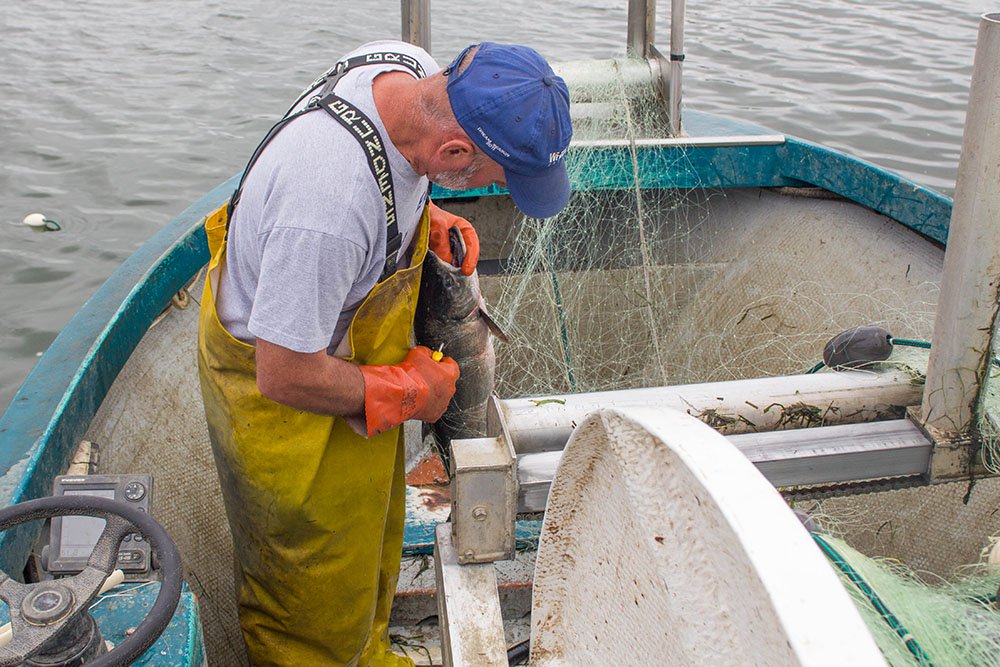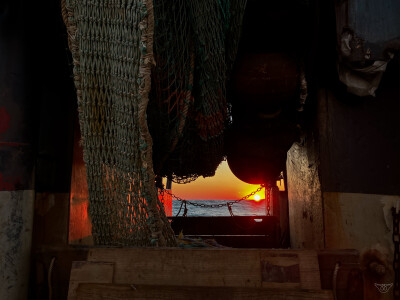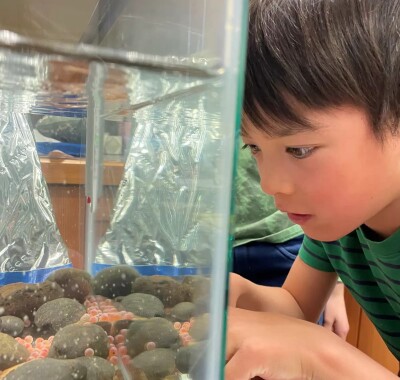Oregon fish and wildlife officials split with their counterparts in Washington on a major salmon management decision for the Columbia River commercial fleet.
Martin Rice on the Punkin’ in an off-channel area where gillnetters will press in if they are pushed off the Columbia River main stem. Susan Chambers photoFor 99 years, the dual Fish and Wildlife commissions have co-managed their shared territory. On Friday, Jan. 20, the Oregon Fish & Wildlife Commission opted out of a 2012 agreement to phase out gillnetting on the main stem of the river by 2017.
The plan was to reserve fishing on the main stem for recreational fishermen and sequester commercial fishermen to fishing the side channels, ostensibly in an effort to preserve salmon stocks. The policy laid out a four-year transition period with full implementation by Jan. 1, 2017. But it left room for modifications.
Under the Oregon commission’s new plan, 80 percent of spring and summer wild king salmon quota will be reserved for recreational fishermen, while the remaining 20 percent would be commercial quota. Only tangle nets will be allowed on the main stem in the spring, with large-mesh gillnets allowed in the summer.
The commercial fleet will be allocated 34 percent of the fall king salmon quota, with the remaining 66 percent going to the recreational sector.
Washington’s commission voted in mid-January to implement most of the key provisions of the dual-management policy but delayed the sport sector’s allocation of 80 percent of the fall king salmon quota. The original plan designated 80 percent to recreational interests in 2017. Washington’s new plan steps up the sport quota to 70, 75 and 80 percent over the next three years. The updated policy also would allow mainstem commercial gillnetting for upstream fall king salmon, but calls for improved monitoring.
“While we have made a couple changes to the policy for the next two years, we are committed to full implementation, meeting conservation goals and transitioning gillnets into off-channels areas,” said Larry Carpenter, vice chairman of the commission.
The conflicting decisions will likely result in each side of the river being managed under different commercial fishing regulations, which hasn’t been the case since 1918’s Columbia River Compact was ratified.
"We're all trying to figure out what we can do," Sen. Fred Girod (R-Stayton, Wash.) told the Oregonian. "I can guarantee there's going to be a dog fight."
Oregon gillnetters have long been urging regulators to drop the ban. Jim Wells, president of Salmon for All and an Astoria fisherman, said in March 2016 that big migratory fish returns the past couple years have kept gillnetters working. He said limiting gillnetting to the Columbia’s side channels would cost commercial fishermen two-thirds of their income.
Gillnetters had pushed for more commercial quota. Proponents of sportfishing, however, say gillnetting should only be allowed on the river’s side channels because sport fishing is better for the economy.
“When everybody’s a little unhappy, it’s probably a reasonable decision,” Steve Fick, owner of Fishhawk Fisheries out of Astoria, Ore., told the Associated Press.
The initial proposal — introduced by former Oregon Gov. John Kitzhaber (who later resigned as a result of an unrelated controversy) was fraught with ill-conceived alternatives, including using seine gear to fish more selectively for hatchery (as opposed to wild) salmon. Those tests resulted in higher mortality of non-targeted species.
The Coastal Conservation Association lobbied Kitzhaber to make the changes in favor of sport fishing, claiming gillnets are not selective enough. But the so-called conservation plan did not reduce quota. It simply shifted quota from the commercial to the recreational sector, a signature move of the CCA.
“The Columbia River belongs to everyone, and the fish in it are a shared public resource that belongs to everyone,” Clatsop County Commissioner Dirk Rohne told the Daily Astorian in 2012. “Everyone should have the same right to enjoy Columbia River salmon, and that is a service the gillnetters provide for all of us.”







